After a high-intensity European night against PSG, Hansi Flick said his team showed “fatigue” in the second half, explaining that he protected Pedri and “Marcus” with early changes. The comments triggered an immediate storm among supporters, who argued the substitutions blunted Barcelona’s control and threat out wide. Some pointed out that PSG coped with their own schedule and still finished stronger. Others highlighted how removing a wide presence let Achraf Hakimi push on late. While opinions vary on personnel and timing, the core debate centers on conditioning, rotation depth, and whether game-state management matched the stakes of the occasion.
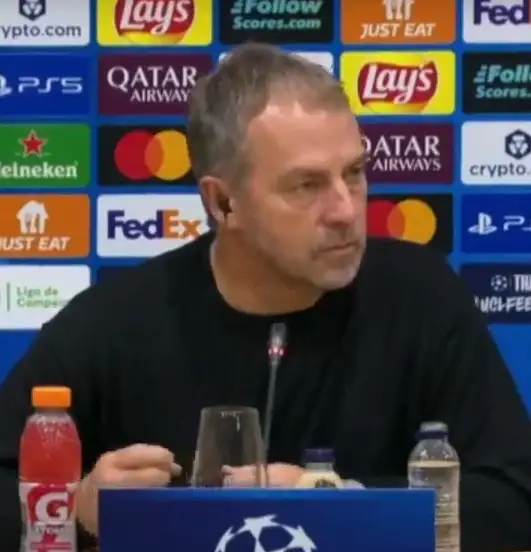
The remarks came in post-match media comments following a Champions League meeting between Barcelona and Paris Saint-Germain. The game tightened substantially after the interval, with momentum swings and a late decisive phase. Barcelona’s staff managed minutes for key players, including Pedri, amid a congested early-season schedule. The tactical picture in the closing stages featured PSG’s right flank advancing more aggressively, coinciding with Barcelona’s attacking reshuffle on the wings. The result intensified scrutiny on in-game management and load control choices as Barcelona navigate domestic fixtures and European nights in quick succession.
Flick: "I think in the second half you could see the fatigue of a large number of players, and that's why we tried to take care of Pedri and Marcus."
@BarcaUniversal
Impact Analysis
Flick’s justification rests on a sports-science reality: players returning from intense periods—or with a known injury profile like Pedri—require conservative load management, especially when second-half intensities spike. Protecting a creative hub can prevent medium-term setbacks, but it imposes an immediate trade-off: less control between the lines and fewer secure touches in progression. Once Pedri left, Barcelona risked losing rhythm in the 10-half space, increasing reliance on direct outlets.
The wider debate is about edge-case decision-making. In tight Champions League ties, coaches often accept higher injury risk for tactical continuity. Flick took the opposite path. If the intention was to restore verticality and freshness, the execution needed clear compensations: protecting the right channel against Hakimi’s overlaps and preserving aerial control on crosses. Without both, PSG’s late surge became likelier.
Squad composition magnifies these choices. Barcelona’s bench has profiles but not like-for-like replacements for Pedri’s tempo-setting. On the flank, removing a strong two-way presence can unshackle Hakimi, whose timing in the final third is elite. Thus the substitutions were logical in principle but costly in detail: the team lost equilibrium just as PSG increased field occupation.
Long term, Flick’s stance may still be prudent. Champions League campaigns are marathons. Keeping Pedri’s minutes moderated could prevent a relapse, and calibrating wing workload is essential. Short term, however, the optics hurt: a marginal game swung after the changes, inviting criticism that will persist until results validate the load-management model.
Reaction
Fan sentiment split hard and fast. A vocal group blasted the “fatigue” line as a soft excuse, arguing PSG also faced a packed calendar yet finished with sharper legs. Several posts insisted the flank switch was the turning point: removing a wide outlet that pinned Hakimi allegedly gave PSG license to advance, culminating in the decisive action down that side. Others zeroed in on the goalkeeping discourse—some harshly questioning the starter and name-checking alternative options—while counter-voices pushed back, noting the shot quality and defensive context mattered more than a single save.
Confusion flared around “Marcus,” with some commenters referencing Marcus Rashford. That likely reflects thread noise more than reality, yet it fueled frustration about identity and selection clarity. Meanwhile, the Pedri sub drew near-unanimous concern: even those who accept minute management argued the timing undercut Barcelona’s control of tempo and press-resistance. A minority defended Flick, pointing to data-led load thresholds and Pedri’s history; for them, risking a key creator in September/October for marginal late-game gain is irresponsible.
In short, the timeline framed it as coaching conservatism versus competitive ruthlessness. Until the next big match tips the narrative, social media will keep replaying the same clip: a flank left vulnerable, Hakimi powering forward, and the sense that the game’s hinge moments arrived right after the changes.
Social reactions
Managing minutes is key 👌
Mohan's Football (@mohans_football)
Lane excuse. Rashford was our best attacker and Pedri was the best midfielder. Who takes off Pedri for bernal in a champions league match against psg.
BIG VIBES🎯🖤🏅♟🥂 (@Thompsonbaron7)
I really feel sorry for flick. I really am.
$$$David$$$ (@divadiyin)
Prediction
Expect Barcelona to formalize stricter minute plans for Pedri—ramping starts with predefined substitution windows, particularly in matches with heavy transitional load. Flick will likely double down on a two-pronged strategy: protect core creators while refining game-state responses to avoid surrendering flanks late. Practically, that means clearer contingency patterns: if a winger exits, a like-for-like runner keeps the full-back honest, and the weak-side eight tucks to block counters.
On the right, nullifying Hakimi-like threats will become a non-negotiable. We may see earlier fresh legs specifically tasked with wide tracking, or a mid-block phase that denies diagonal switches. In possession, Barcelona could lean on a double pivot to stabilize rest defense when Pedri steps off, preserving central access without overexposing the wings.
Rotation politics will also evolve. To quiet the discourse, Flick needs a statement performance where managed minutes coexist with a clean late-game. A controlled 1-0 with strong final 20’ would reset perceptions overnight. If not, scrutiny intensifies, and the winter window conversation shifts to depth: another press-resistant midfielder and a two-way winger to maintain width and defensive cover when starters rest.
Outcome spectrum: Best case—Barcelona refine late-phase structure, Pedri remains healthy, and results normalize. Worst case—repeated late concessions force tactical overcorrections and erode confidence. The next three high-leverage fixtures will decide which path sticks.
Latest today
- Manchester United eye Manu Koné for summer 2026 - a made-to-measure fit for Amorim's midfi...
- Ruben Amorim aligns with Jason Wilcox as Man United sharpen January transfer plan
- Ruben Amorim on 3-4-3: identity first - what it means for Manchester United and player rol...
- Amorim flags United injury crisis - Bruno, Mainoo, De Ligt, Maguire and Mount doubtful
Conclusion
Flick’s explanation is coherent in theory: protect high-value assets when the data flashes red. But elite nights punish imperfect substitutions. Remove a metronome and you lose control; loosen a flank against an overlapping specialist and you concede territory. The tension between long-term prudence and short-term pragmatism is the job description at this level.
Barcelona can turn this flashpoint into a blueprint. Codify role-for-role swaps, preserve pinning width, and keep a hard cap on Pedri’s minutes without forfeiting the wing battle. Communicate it, too—clarity wins buy-in when results wobble. Supporters will tolerate conservative calls if the team closes games professionally.
Ultimately, the debate will fade only when patterns change. A resilient last act—with crisp structure, fresh legs in the right zones, and risk managed rather than avoided—will validate Flick’s approach. Until then, the clip of a late PSG surge is the reminder: margins are thin, and details decide everything.







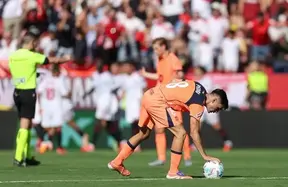
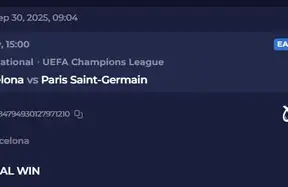
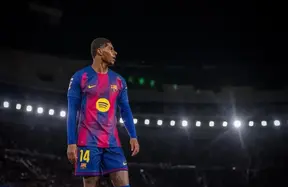
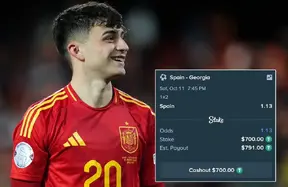
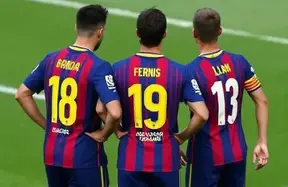
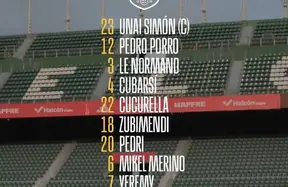
Mohan's Football
Managing minutes is key 👌
BIG VIBES🎯🖤🏅♟🥂
Lane excuse. Rashford was our best attacker and Pedri was the best midfielder. Who takes off Pedri for bernal in a champions league match against psg.
$$$David$$$
I really feel sorry for flick. I really am.
MR MAX
Off season you were rested and PSG was playing CWC🤫
Yasir Adam
And who told you Rashford was tired? That same person also told you ferran doesn't get tired at all right? Rashord's presence in that wing kept Hakimi busy, and you removed him, send Ferran there. Before you know it, boom Hakimi assisted the winning goal. Flick decisions cost
NotYourRegular
Fatigue? What if you played the club World Cup?
EAGER
👀👀
WEALTH 🤑😍
Stop talking shit jare
Chiukwujioke_Proudly Anioma
Was rashford tired? I dnt think so
Amponsah Kwame
This is a lame excuse. PSG also played a match before meeting us. Barca sometimes plays nonsense, no pressing, highline at unnecessary moments plus this team won’t win champions league again if they don’t find ways to sign players
Damian🦅
You were shit man...no argument!!
uchejigbo chiemezie
When this two were in the field we were better… the subs were nothing to write home about
Noorie
Bro stop these useless substitutions. Rashford was not tired.
Prizor
Tek should be retired wtf 😒 the second goal would've been an easy catch for Joan G.
Akwasi
so you didn’t want to win ?
Zyair
Yeah and look how that turned out
بلا ل علي🇦🇷 ❈
Ubanka ya banki fatigue ya mutu
Shubham Dubey
Flick is right
CX 🌐
Too much explanation